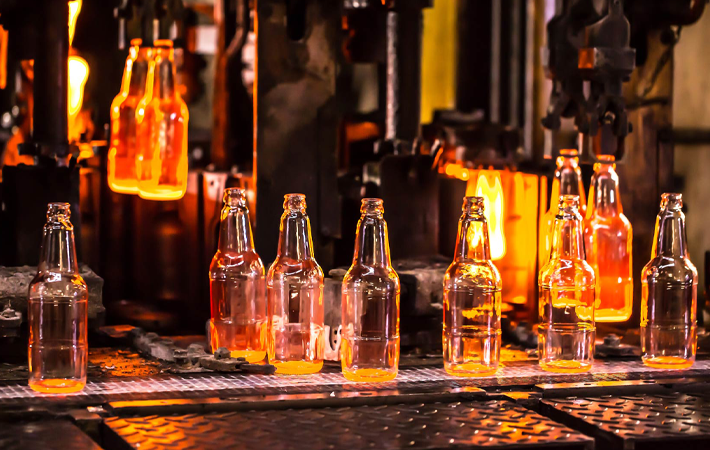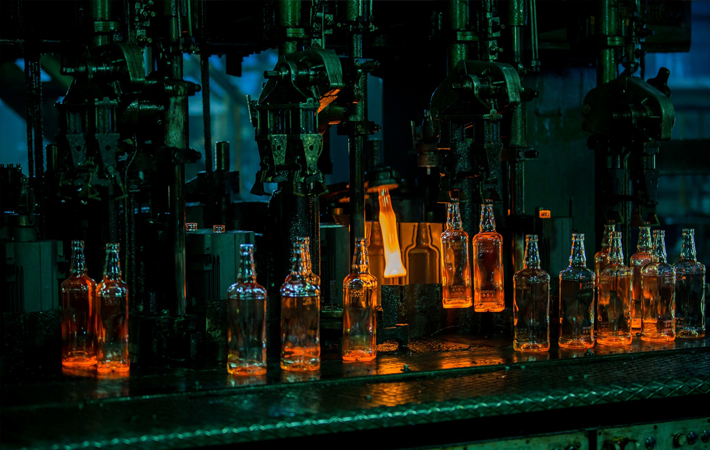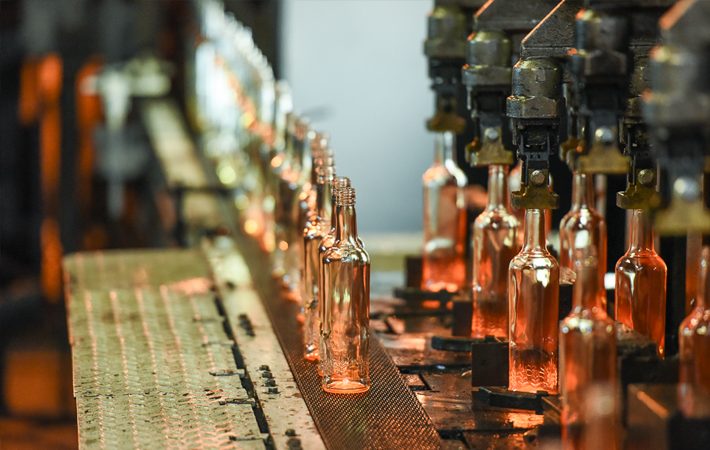
Pay attention to the chemical stability of glass bottle
Glass bottle products will be corroded by water, acid, alkali, salt, gas and other chemical reagent solutions during use. The resistance of glass to these attacks is called chemical stability. The chemical stability of glassware products is mainly reflected in the corrosion of water to glass and the corrosion of atmosphere to glass.
In the production of domestic glass bottles and vessels, some small factories sometimes think that to reduce the melting temperature of glass, increasing the Na2O content in the chemical composition of glass or reducing the SiO2 content will reduce the chemical stability of glass. Glassware products with poor chemical stability are stored in a humid environment for a long time, which leads to hair on the surface of the product and loss of the luster and transparency of the glass itself. This phenomenon is often referred to as "alkali return" in the factory, and the reason is that the chemical stability of the glass against water decreases.
This should be paid enough attention to. Do not excessively seek to reduce the melting temperature and increase the Na2O content. Some fluxes should be introduced properly or the chemical composition should be adjusted to reduce the melting temperature, otherwise it will cause serious quality problems for the products. Sometimes, due to the poor chemical stability, it seems that there is no "alkali return" at that time, but after the export to some countries with high air humidity, the "alkali return" will cause large economic losses. Therefore, the chemical stability of glass should be fully understood in glass production.
In the production of domestic glass bottles and vessels, some small factories sometimes think that to reduce the melting temperature of glass, increasing the Na2O content in the chemical composition of glass or reducing the SiO2 content will reduce the chemical stability of glass. Glassware products with poor chemical stability are stored in a humid environment for a long time, which leads to hair on the surface of the product and loss of the luster and transparency of the glass itself. This phenomenon is often referred to as "alkali return" in the factory, and the reason is that the chemical stability of the glass against water decreases.
This should be paid enough attention to. Do not excessively seek to reduce the melting temperature and increase the Na2O content. Some fluxes should be introduced properly or the chemical composition should be adjusted to reduce the melting temperature, otherwise it will cause serious quality problems for the products. Sometimes, due to the poor chemical stability, it seems that there is no "alkali return" at that time, but after the export to some countries with high air humidity, the "alkali return" will cause large economic losses. Therefore, the chemical stability of glass should be fully understood in glass production.
 Liquor Bottle
Liquor Bottle










